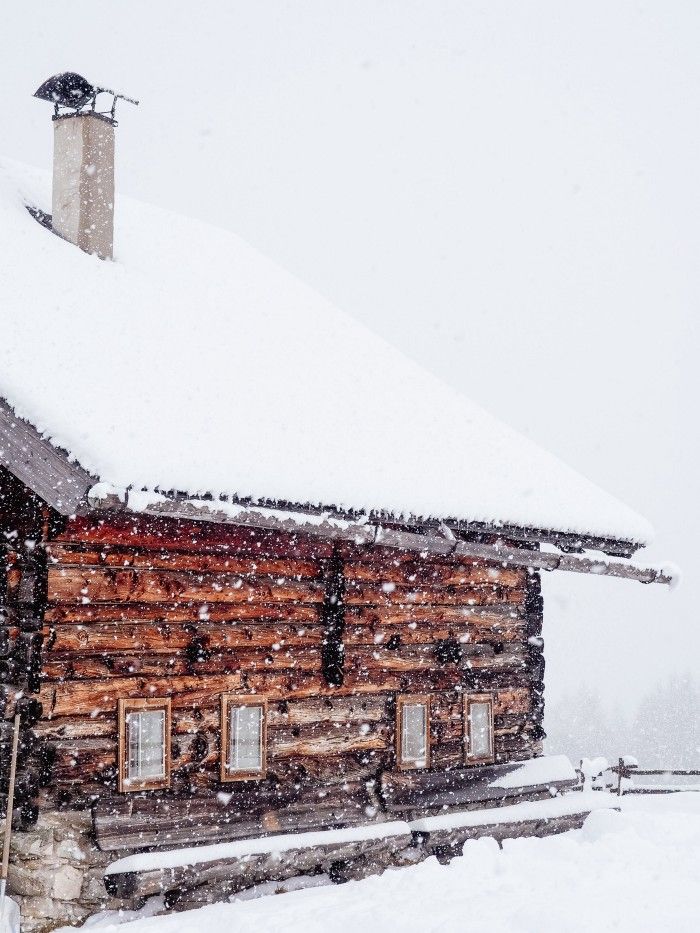How to Use the Cold Weather

I woke up yesterday morning to the gales of November, the same that brought down the Edmund Fitzgerald in 1975, according to meteorologists who said the atmospheric mix that dumped a few inches on my town is the same that brought down the mighty freighter.
I could hear a collective groan from the rest of the Great Lakes, but I was pretty stoked.
Sure, my garden isn’t quite ready for winter yet, and I’m not a big fan of snow, but I liked it. I immediately went for a walk: in the Persephonic silence. It was beautiful outside. Everything was white, snow was swirling, a cold breeze fanned my face. I found myself kind of wishing I were hungover so I could experience the relief that comes with a cool blast the morning after, but the snow came 24 hours too late for that.
I recently counseled readers: “Take what the day gives you.”
The same applies to the seasons.
Every season has its advantages and disadvantages. For me, the cooler seasons offer enormous advantages. In particular: quietness, sitting, books, study, maybe even more prayer.

I found myself yesterday morning thinking about Russian monks and hermits, those great winter athletes of the mind and soul. For centuries, they pushed further and further north, even into the Arctic Circle, trying to get away from the expanding Russian Empire, building cabins for themselves, where they prayed, contemplated with the Bible, and read hesychastic spiritual works, using their prayer ropes and chopping wood like postmodern man using the Internet and texting messages.
I imagine that they were the most existentially terrifying creatures ever: long white beards, black garb, irascible men of dour demeanor who didn’t suffer fools gladly. Well, actually, they didn’t suffer fools at all, unless perhaps they were dealing with a yourodivyje (fool-in-Christ).
Some say they could read minds or intuitively know when a filthy soul walked into their room.
You might think they were all the same, but that wouldn’t be accurate. Some were weird, others were merely eccentric. There were also a few that were downright nuts, even by the standards of, say, the eighteenth century, which was more tolerant than the 20th of mental problems, often finding them more amusing than institutionalizing.
Of course, a few of these winter ascetics were remarkably kind, even tender, in their counsels, though I suspect it was the monks, not hermits. Hermits are hermits for a reason: they aren’t much drawn to others. Monks, on the other hand, live in community. They often consult with the laity and know some were kind, like Elder Ambrose of Optina, on whom Dostoyevsky modeled the gentle Fr. Zosima in The Brothers Karamazov.
I found myself looking at my garden greenhouse/shed yesterday, thinking I could probably adapt it into a hermitage of sorts.
Or not.
Right now, it’s filled with a riding lawn mower, two wheel hoes, and an assortment of gardening supplies and implements.
So I began to think whether I could build a hermitage in the thick tree line that frames my east property line. It’d put me about 150 yards from my house, far enough away for silence, close enough to make a TV dinner when I get hungry. I’d call it “Russian Hermitage Lite.”
The only problem is, I don’t know how to build anything. Plus, I’d need a building permit, which wouldn’t be forthcoming. And once people saw it, they’d apply the standards of the day and assume I'm using the hut for Robinson Crusoe's gentle art.
So it won’t happen.
What is that urge in me to carve out a place, something outside space and time?
I think it could be a lot of things, and the possibility that I’m simply a fool-in-Christ without the “in-Christ” part has crossed my mind.
But I think the urge is common to a lot of people, maybe even all people, at least at some level.
The writers Dan Pink and Michael Pollan, for instance, built writing cabins on their properties. Carl Jung spent months in a retreat he built near Lake Zurich. Indians (dots, not feathers) have long added meditation rooms to their homes.
There is a need to carve space and time out of space and time, to create a sub-space for yourself that isn’t intruded upon. Some people no doubt need more sub-space than others, but I think everyone needs at least a little bit of it, even the most annoyingly extroverted among us.
We know the sub-spaces are necessary to a healthy mental and emotional life. I wrote it about two weeks ago when I wrote about the rise of meditation, but I don’t think it’s just about meditation. There is something in us that wants to get beyond the world of subject-object, to touch, I suspect, the God-head, the He Who is . . . Who is without attribute and beyond subject-object.
There’s a reason the Gospels repeatedly recount that Christ went by himself to pray. He had to check in with headquarters, almost like He went away and said, “Criminy. I’m besieged by my ego and the world, like a silver ball in that Evel Knievel pinball machine. I need to remember Who I am and where I came from.”
I think we all have that need. There’s a reason we’re told to imitate Him.
The coming cold weather gives us all a greater opportunity to. That’s its biggest advantage.
